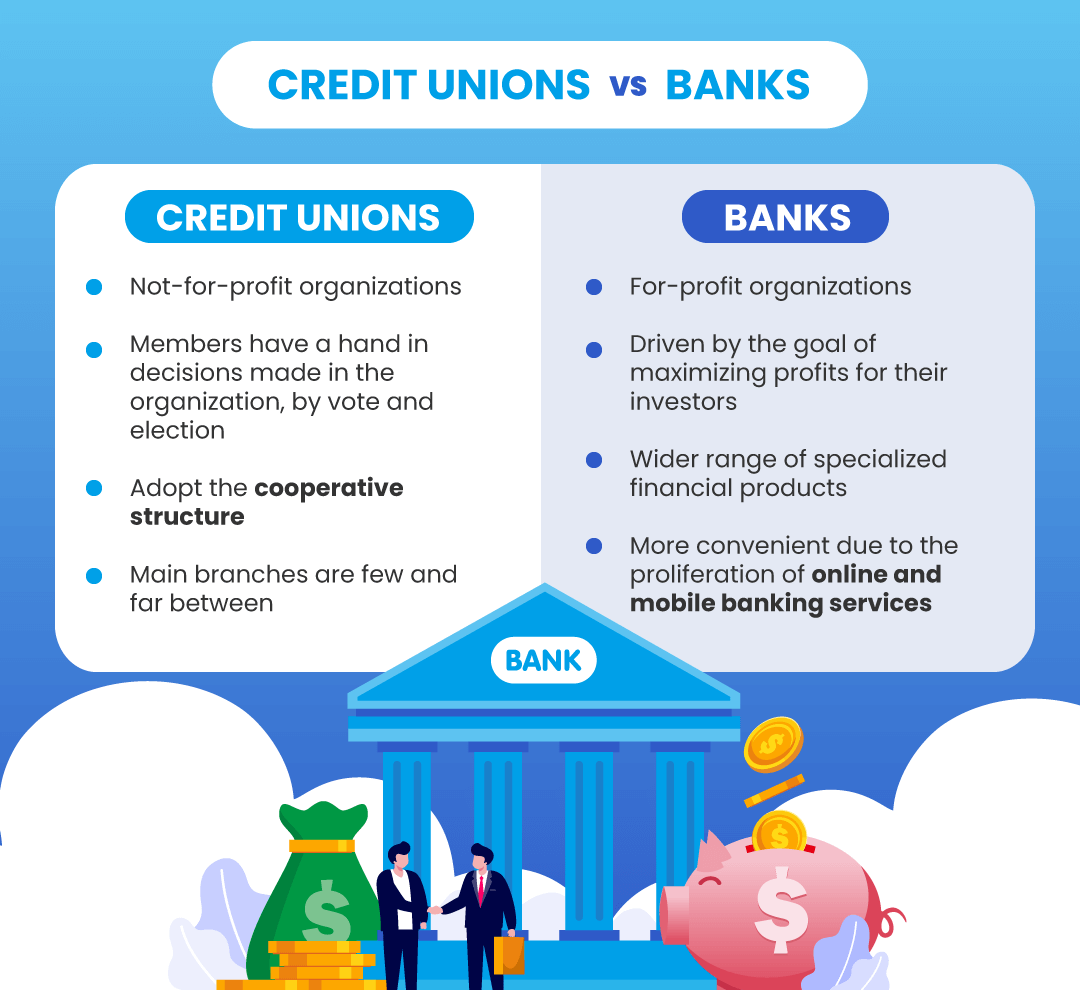The Ultimate Overview to Comprehending Credit Scores Unions

Credit scores unions stand as one-of-a-kind economic entities, rooted in principles of mutual support and member-driven procedures. As we navigate with the intricacies of debt unions, an insightful journey awaits to lose light on these member-focused establishments and how they differ from conventional banks.
What Are Credit Scores Unions?
Lending institution are member-owned banks that provide a variety of financial solutions to their participants. Unlike typical financial institutions, credit history unions operate as not-for-profit organizations, implying their primary focus gets on offering their members as opposed to maximizing earnings. Members of a debt union usually share a common bond, such as benefiting the exact same company, belonging to the same area, or belonging to the same company.
Among the essential advantages of lending institution is that they usually provide greater rate of interest on interest-bearing accounts and reduced rate of interest prices on car loans contrasted to financial institutions. Credit Union in Wyoming. This is because cooperative credit union are structured to benefit their members directly, permitting them to pass on their incomes in the type of far better prices and less charges. In addition, cooperative credit union are understood for their individualized client service, as they focus on building relationships with their members to understand their distinct economic needs and goals
History and Evolution of Cooperative Credit Union
The origins of member-owned financial cooperatives, known today as lending institution, trace back to a time when areas sought alternatives to traditional financial institutions. The concept of credit history unions come from in the 19th century in Europe, with Friedrich Wilhelm Raiffeisen typically credited as the pioneer of the cooperative financial motion. Raiffeisen established the first acknowledged cooperative credit union in Germany in the mid-1800s, emphasizing area support and self-help principles.
The advancement of lending institution proceeded in The United States and Canada, where Alphonse Desjardins developed the first credit rating union in Canada in 1900. Quickly after, in 1909, the very first united state debt union was created in New Hampshire by a group of Franco-American immigrants. These very early cooperative credit union operated the fundamental concepts of common support, autonomous control, and member ownership.
Over time, lending institution have actually grown in popularity worldwide due to their not-for-profit framework, concentrate on offering members, and supplying competitive economic services and products. Today, cooperative credit union play an important function in the economic industry, giving community-oriented and accessible financial options for companies and people alike.

Subscription and Qualification Criteria
Subscription at a credit union my latest blog post is usually restricted to individuals fulfilling specific qualification standards based on the establishment's starting principles and regulative needs. Some credit unions might just serve individuals that live or work in a certain location, while others may be tailored to workers of a specific company or participants of a specific association.
Additionally, credit report unions are structured as not-for-profit companies, implying that their key objective is to serve their participants as opposed to generate earnings for shareholders. This emphasis on member service frequently translates right into more customized attention, lower fees, and affordable rate of interest on fundings and cost savings accounts. By fulfilling the qualification criteria and ending up being a member click for more info of a credit report union, individuals can access an array of monetary product or services tailored to their certain needs.
Solutions and Products Supplied
One of the vital aspects that sets lending institution apart is the varied series of economic services and products they supply to their members. Credit history unions commonly provide conventional banking solutions such as financial savings and checking accounts, loans, and bank card. Participants can additionally gain from investment services, including retirement accounts and monetary preparation help. Several credit history unions use affordable rates of interest on savings accounts and fundings, in addition to lower charges compared to conventional banks.
Moreover, credit history unions typically offer convenient online and mobile financial choices for members to conveniently manage their finances. They might provide benefits such as common branching, allowing participants to access their accounts at other credit unions throughout the nation. Some lending institution additionally provide insurance policy products like life, vehicle, and home insurance policy to assist members shield their possessions and enjoyed ones.

Benefits of Banking With Lending Institution
When taking into consideration economic institutions, checking out the advantages of financial with credit scores unions reveals distinct benefits for participants seeking personalized solution and competitive prices. Unlike large financial institutions, credit unions are member-owned and focus on building solid relationships with their participants. In general, banking with a credit report union can offer an extra customized, cost-effective, and member-centric monetary experience.
Verdict
In verdict, cooperative credit union stand apart as member-owned banks that prioritize offering their participants over taking full advantage of profits. With origins dating back to 19th century Europe, credit score unions adhere to concepts of mutual help and participant ownership. They offer a variety of economic services and products, including typical financial solutions, investment choices, and affordable passion rates. Membership eligibility criteria are certain and mirror a community-oriented approach, providing individualized customer care and a member-centric monetary experience.
Credit unions are click to read more member-owned economic establishments that offer a range of financial solutions to their participants. The principle of credit rating unions originated in the 19th century in Europe, with Friedrich Wilhelm Raiffeisen frequently credited as the pioneer of the cooperative financial movement.The evolution of credit history unions continued in North America, where Alphonse Desjardins established the initial credit rating union in Canada in 1900. Credit rating unions generally provide typical financial services such as savings and examining accounts, financings, and credit scores cards.When taking into consideration economic organizations, exploring the benefits of banking with credit unions exposes distinct advantages for participants seeking tailored solution and competitive rates.